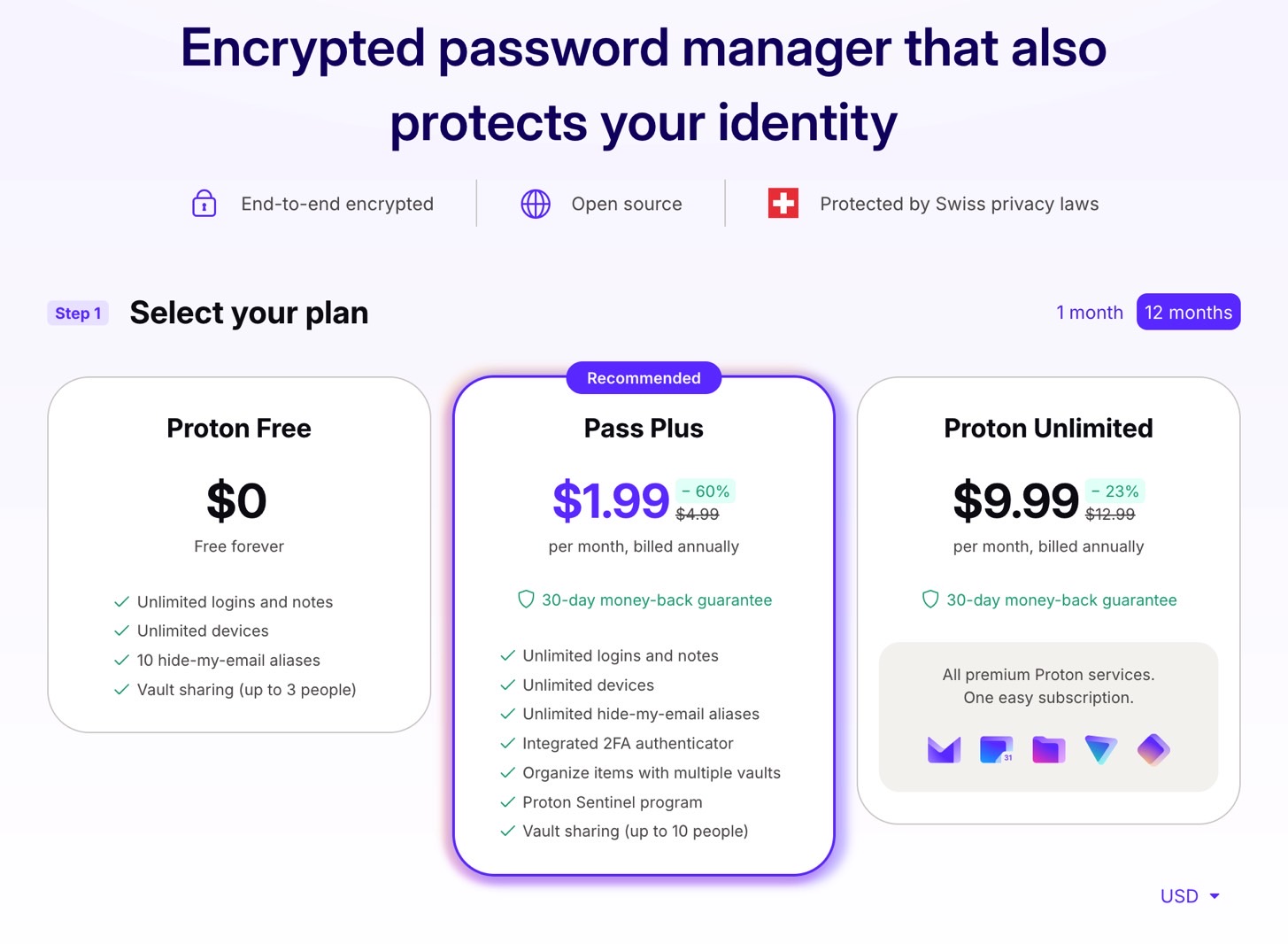In a matter of days, we learned not just about one but two massive password data breaches. One involved millions of leaked passwords, while the other concerned some 26 billion records, including passwords and other personally identifiable information.
If you still don’t use a password manager to safely store all the passwords for your online accounts and suggest safe, unique passwords for the new internet accounts, now’s the time to do it. If you recycle your passwords to remember them more easily, now is the time to replace them with unique passwords that your password manager can remember for you.
There are several great solutions on the market right now, and I’m using a combination of three: the iPhone’s built-in password manager, 1Password, and the Proton Pass service.
I’ve been using Proton Pass since it launched, and I’ve recommended it a few times already. I also said the premium Proton Pass Plus subscription is the way to go, as it offers better features than the free version. I pointed out a few great Proton Pass deals recently.
If you’ve failed to take advantage of them, you should know that Proton just dropped prices for Proton Pass Plus, and the discounts apply to existing customers as well. That’s right — you might be getting some money back soon.
Internet services that come with subscriptions usually go up in price, not down. Netflix is one such example, as the streamer might raise prices again soon. You hardly ever see price cuts. That’s why Proton’s announcement is so surprising.
If you choose the annual plan, Proton Pass will cost $1.99/month instead of the previous $3.99. That’s a 50% discount on the paid Proton Pass version that gives you better features. I will highlight the unlimited hide-my-email aliases feature, the built-in 2FA authenticator, and the Proton Sentinel security feature.
The new price applies to new customers and existing ones. If you have an annual Proton Pass Plus subscription since the password manager launched last year, you’ll soon receive an email with instructions on taking advantage of the lower price.

Why is Proton dropping the price?
So, what’s the deal? Why is Proton dropping the prices? Is this as good as it sounds? Proton founder Andy Yen explains in a blog post that Proton has reached economies of scale for Proton Pass sooner than anticipated. That’s thanks to the “swift adoption of Proton Pass and the rapid growth of the paid Proton Pass user base.”
Proton isn’t “subject to the relentless drive to maximize profits to the detriment of our community,” as it’s not investor-funded. Proton software isn’t the cheapest option on the market either, considering the company’s focus on encryption, which guarantees security and privacy.
But Proton has found ways to prevent price hikes over the years. Proton Mail Plus will have the same price in 2024 as it did ten years ago. Moreover, storage tripled for Mail Plus accounts a few years ago without a change in subscription prices.
“With more and more people using Proton Pass, we had to focus on optimizing our architecture and infrastructure to better handle the ever-increasing load,” Yen said.
“As a result, we managed to reduce our server cost per account, allowing us to decrease prices. We can scale down costs faster because we own and operate all our server infrastructure unlike most other password managers, which rely on third-party cloud service providers such as Amazon Web Services (AWS).”
The one quirk
However, you don’t have to pay for the basic Proton Pass features. You can test Proton Pass for free by creating an account at this link. You then have time to decide whether the premium service is for you. The $1.99 price won’t change if you get a 12-month package.
If you’re already a paying Proton subscriber, and your subscription doesn’t cover Proton Pass Plus, you’ll have to get the Proton Unlimited offer. Depending on the subscription cycle length, this will cost you anywhere from $7.99 per month (two-year plan) to $12.99 per month. In addition to Mail Plus and Proton Plus, Proton Unlimited offers premium access to Calendar, Drive, and VPN.








